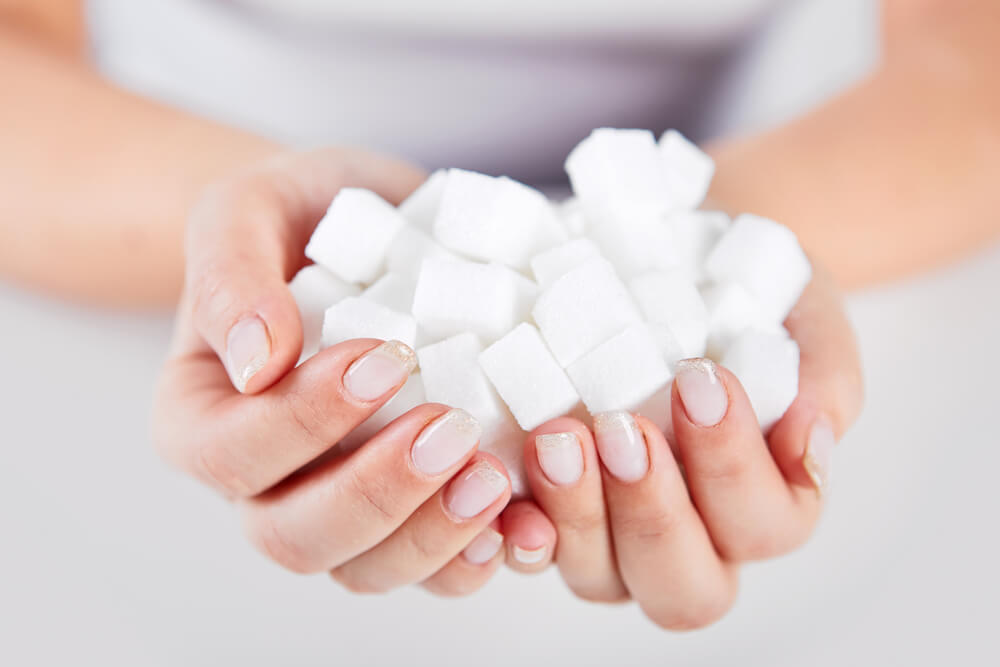A sign was posted in a local supermarket recently that cried “Fat is in; Sugar is out”. Saturated fats have been the poster child of obesity for the last several decades.
With new studies coming on the scene decrying the sugar companies of fraudulent scientific reports, though, nutritionists are able to admit what they have known for years: unhealthy fats aren’t the only killer but sugar may be the most dangerous of them all.
The average American citizen consumes an average of approximately 152 pounds of sugar each year, reported by the DHHS.
At this point, it is too late to cut society off cold turkey from these unhealthy dieting habits. Perhaps this isn’t the only solution though.
In this article, we are going to be looking towards the myriad of sugar substitutes that are available. We dig into the nutritional aspect of each, the differences that it holds to general white sugar or corn syrup additives and a breakdown of exactly what each is.
Why to Consider Sugar Substitutes
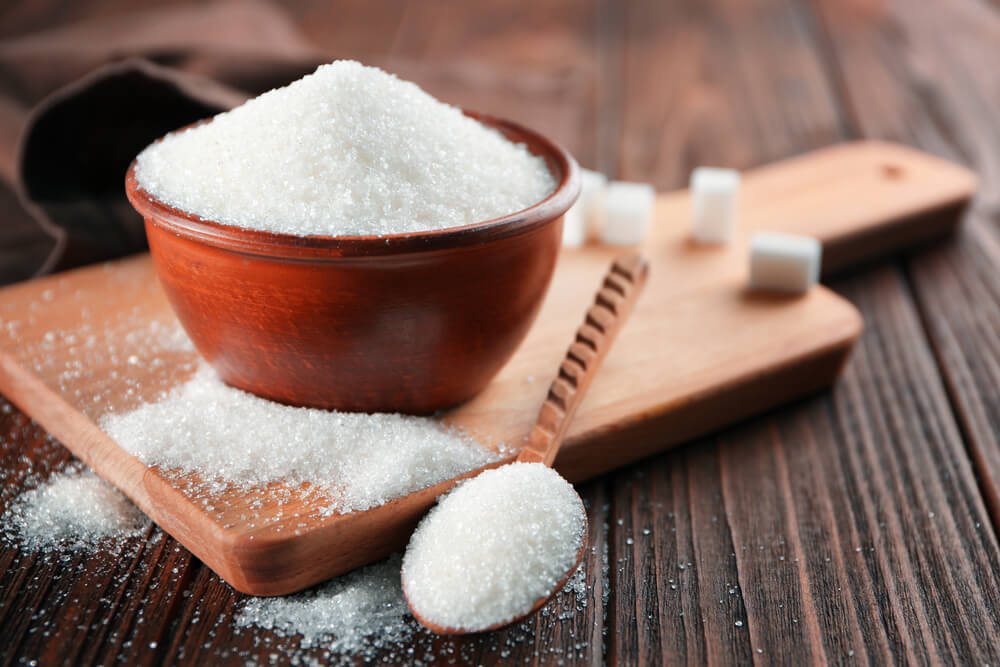
First, why should sugar substitutes even be considered?
Let us examine it from a health perspective for the individual. The first thing to know is that our bodies only need one type of sugar to survive, glucose.
We don’t need to obtain this from adding more sugar into our food sources because our body will break them down from fats and carbohydrates.
Other than giving our food a sweeter flavor, what does sugar really do for us then?
Healthline lays out some of the major ways that sugar damages our systems.
Sugar is a leading cause in visceral fat accumulation, leading to weight gain in an unhealthy way. It has also been directly linked to a number of cardiovascular diseases, helping heart disease be the number one killer worldwide.
Additionally it has been linked to health issues such as obesity, high blood pressure, diabetes and may even increase an individual’s chance of cancer.
On a less concerning level, yet still irritating, too much sugar can lead to breakouts in the skin.
If you think that it is worth it to try to cut some sugar out of your diet, but your sweet tooth is begging you otherwise, know that these are some of the benefits of substituting sugar with a different sweetener:
Weight Loss
Depending on the type of sweetener, your body will treat it differently than it generally will process sugar.
Instead of turning it into visceral fat because there is nothing helpful there, they will be turned into energy and used more like carbohydrates.
This generally leads to weight loss, and at times can be substantial depending on how much a player sugar was in the previous diet.
Tooth Decay
Sugar is the leader when it comes to aiding the process of tooth decay or cavity formation.
The reason for this is that the more sugar that is consumed, the more acid the body produces as a response. The sugar and the plaque on teeth combine to eat away at the enamel.
Switching to a different type of sugar may lead to different processes being triggered in the body. This keeps your teeth clean and healthy for longer.
Decreased Risk of Heart Disease
One of the most important ones to consider will be the decreased risk of a large number of different heart diseases.
Using a sugar that is treated differently in your body may help it to keep your cardiovascular passages clean of fatty deposits and help you maintain a lower blood pressure.
Honey
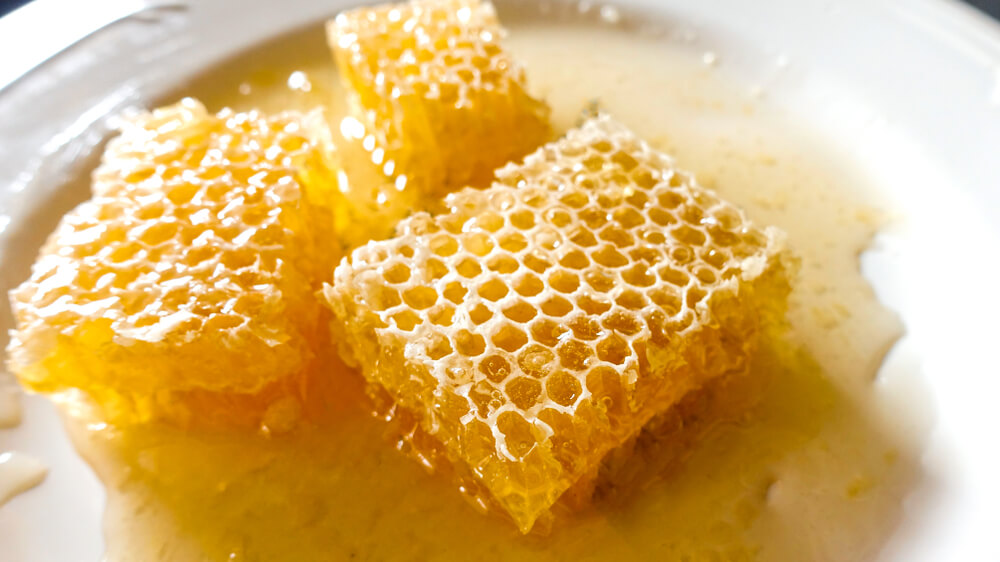
The first substitute to consider is one that is naturally derived: honey. Honey provides more nutrients by far than refined sugars, along with antioxidants and minerals.
What is Honey?
Honey is considered to be a food, viscous in texture and sweet in taste. It is produced by bees from nectar and pollen harvested from plants. Commonly made and stored in honeycombs.
If it is good enough for the bees, is it good enough for us?
Honey has less fructose than several other natural sweeteners, which makes it taste less sweet per gram than others might.
It has many different properties, including antimicrobial, anti-fungal and anti-inflammatory.
The downside is that it is still broken down into glucose and fructose like refined sugar, so it may pose similar health risks if over consumed.
How to Use Honey as a Sugar Substitute
Honey does not have the same makeup that refined sugar does, honey being a viscous liquid and refined sugar generally being in a crystallized form.
This means they can’t be used exactly the same way.
Honey is a great add-in to anything it can dissolve into, such as smoothies, mixed into batter for baked goods, sauces, and dressings.
It is sweeter than refined sugar, so a big upside is getting to add less honey for just as big a sweet tooth satisfaction.
To find great suggestions for how to use honey daily, Royal Bee has a cookbook featuring honey as the sweetener. To purchase honey itself, shop through some of their rich honeys and special flavors.
Agave Nectar
What is Agave Nectar?
Agave nectar is another natural sweetener, this one derived from the Agave plant, the same plant tequila is made from.
It is a great choice for those that struggle with high blood pressure since it is low on the glycemic index, therefore doesn’t cause spikes in blood sugar.
It may not be the right choice for diabetics though. Agave nectar actually contains even more fructose that high fructose corn syrup has.
If agave nectar is eaten in large amounts, it may then lead to excessive weight gains and increased insulin resistance.
The plus side is that agave is much sweeter than sugar is, therefore much less of it should be used.
How to Use Agave Nectar as a Sugar Substitute
Agave nectar is an easy substitute for refined sugar since it can replace other sweeteners in just about every baking and cooking situation.
Simply reduce the amount of sugar called for by at least a quarter of the original amount and mix it up. Since it is a liquid, you may need to add more dry materials to gain the consistency you are looking for, particularly regarding baking recipes.
It tastes similar to honey, so it can be used in smoothies, on bread and in health drinks just like honey. To gain an idea of how to use this one as well as get tips for some of the other substitutes featured, check out this article.
Xylitol
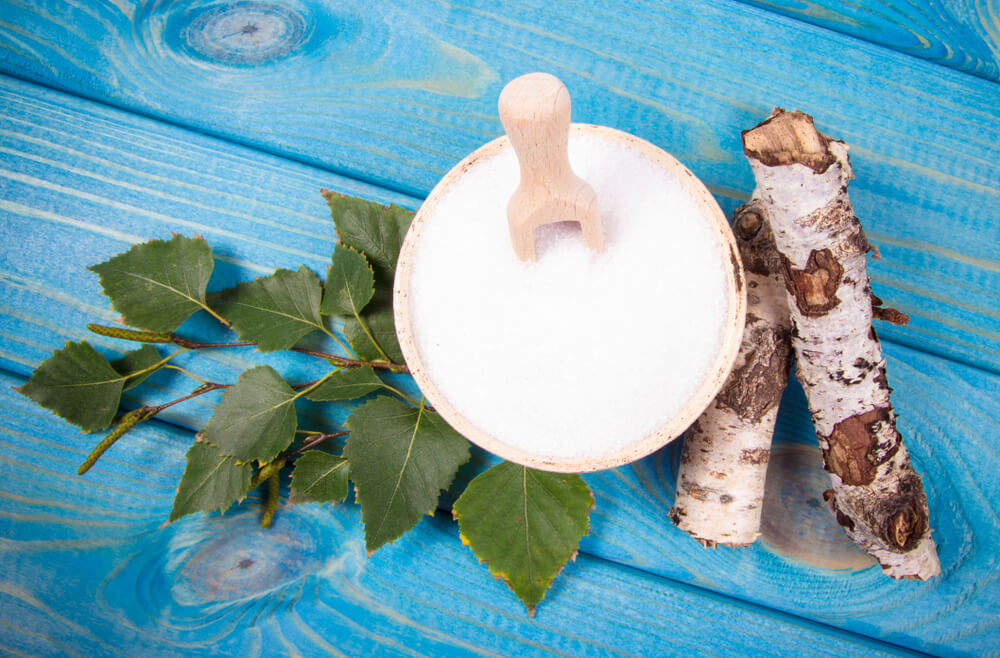
Although it may sound like an over the counter drug, Xylitol is still a naturally occurring substance that is safe for public consumption.
What is Xylitol?
Xylitol is the natural alcohol that is contained in most plant material, like fruits and vegetables. Even so, it is generally extracted from birch wood.
Xylitol is used to make medicine but is also the sugar substitute in many products that claim to be “sugar-free”.
Xylitol contains 40% fewer calories than sugar and does not cause spikes in blood sugar or insulin levels.
Xylitol is one of the naturally occuring sugar substitutes that contains zero fructose. This equates to not having any of the harmful health effects that sugar has.
It is important to note that xylitol is highly toxic to dogs, so keep it out of possible reach from any furry friends you live with.
How to Use Xylitol as a Sugar Substitute
Xylitol is one of the easiest sugars to use as a replacement for cooking and baking recipes, since it generally is sold in a similar form to refined sugar.
It can be used in pies, cakes, cookies and has even been a proven winner for those that enjoy shakes and smoothies.
Xylitol has a very similar level of sweetness to refined sugar, so recipes won’t need to be adjusted.
If you need other tips for how to incorporate xylitol into your diet, read through this article by xylitol.org.
Coconut Sugar
What is Coconut Sugar?
Another naturally derived sugar. Coconut sugar is unrefined, which means that it keeps all of its vitamins and minerals.
Coconut sugar is derived from the sap of the coconut palm, a sweet and sticky substance that is generally sold in a crystallized or powered form.
It has a lower glycemic index than sugar, meaning that it is better for those with diabetes.
However, it is very high in calories, equal to refined sugar, as well as high in fructose.
How to Use Coconut Sugar as a Sugar Substitute
It has a very similar level of sweetness to that of refined sugar, so it should be used carefully.
Coconut sugar is generally called for in many healthy recipes and can be used accordingly. At times, even more of it may be needed to keep taste the same.
It may affect the overall texture of the dish.
The main benefit to using coconut sugar over refined sugar are the natural nutrients contained within. Otherwise, it is very similar to refined sugar.
Fresh Fruit

This one is not as readily thought of as some of the others on the list. However, the Cleveland Clinic reminds us that fresh fruit will be one of the healthiest ways to add sugar back into your diet.
What is Fruit?
This one is a little bit more obvious to most of us than some of the others may have been. Fresh or frozen fruit could be any fruit, strawberries, blueberries, bananas, apples, and kiwi.
The big allure to using fruit is that it is a sweetener that doesn’t contain any empty calories.
Not only that, but it adds rich flavor profiles to the food it is being used in.
How to Use Fresh Fruit as a Sugar Substitute
Some of the big benefits of switching over to a fruit-for-sugar diet is the decrease in sugar cravings.
Fruits are naturally occurring and contain many compounds that our bodies can use. Refined sugar contrasts this by being addictive, full of empty calories and even life-threatening.
Fruits can be used in meals and baking by substituting some or all of the amount of sugar that you would add with fruit. Since it has a much richer flavor profile, add little bits at a time to find the right balance.
Fruit can also be used alongside some of the other healthier sugar substitutes to make a well-balanced, yet still sweet, flavor profile.
Erythritol
Another intense sounding compound, erythritol is very similar to xylitol as a sugar alcohol. The main difference is that it contains markedly fewer calories.
What is Erythritol?
Erythritol isn’t as prolific as xylitol, however it does occur naturally in some foods and natural processes.
Erythritol is produced during processes such as wine, beer, and cheese fermentation.
However, it can also be synthetically derived and may be mixed into other substitutes like stevia and Truvia.
It is great for your teeth, as is xylitol, since it doesn’t feed the bacteria that play a heavy hand in tooth decay. It also increases calcium uptake, strengthening your teeth and bones.
How to Use Erythritol as a Sugar Substitute
Erythritol can be used in a very similar manner to refined sugar. It is approximately 70% as sweet as sugar, so more may need to be added in some cases.
It can be used almost exactly like sugar, with one exception. It is a soluble sugar that melts in high heat instead of caramelizing.
It isn’t a step that is given a lot of consideration, but without caramelization, baked goods won’t become chewy and dense.
Try out some great recipes by Natural Sweet Recipes that have been proven for erythritol use to get a better idea of how to use it.
Stevia
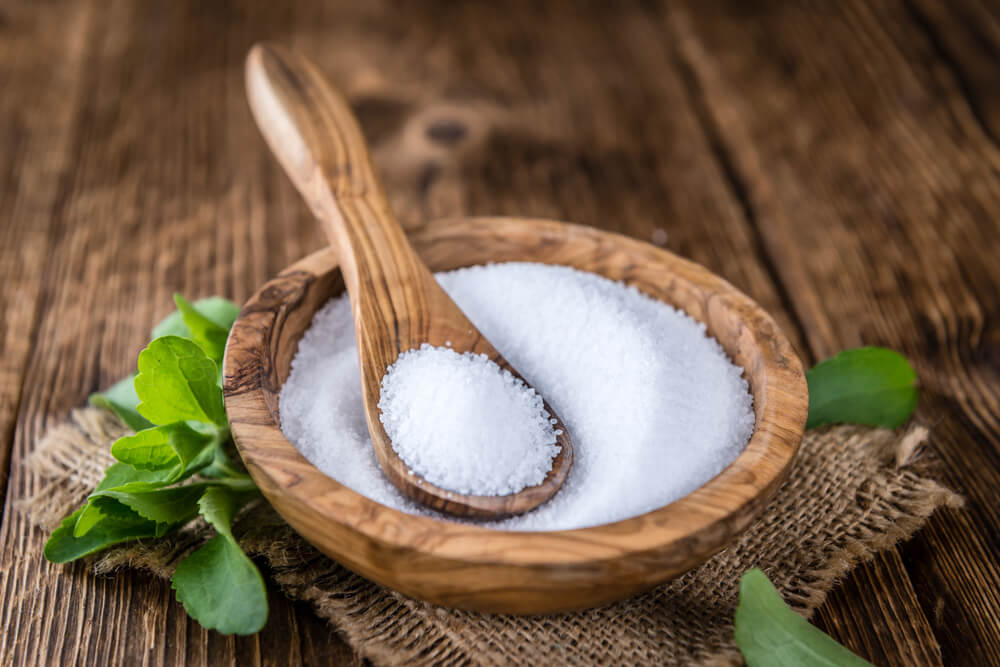
What is Stevia?
Stevia is another plant extract that is completely free from calories. This makes it safe for diabetics. It also means it won’t contribute to obesity.
Stevia is thought to be a novel sweetener, meaning it has a high intensity. Be careful when using Stevia not to use too much.
How to Use Stevia as a Sugar Substitute
Stevia has a noticeable aftertaste that some people don’t appreciate.
This means that it may only really be useful to you when it is baked into desserts or mixed in with another substance like yogurt or oatmeal.
Stevia can be bought in liquid drops, in a plant form or in a packet where it will be crystallized.
Healthline lists out more of the sugar substitutes that are available, along with their breakdowns on more of the health benefits, or otherwise, of each.

